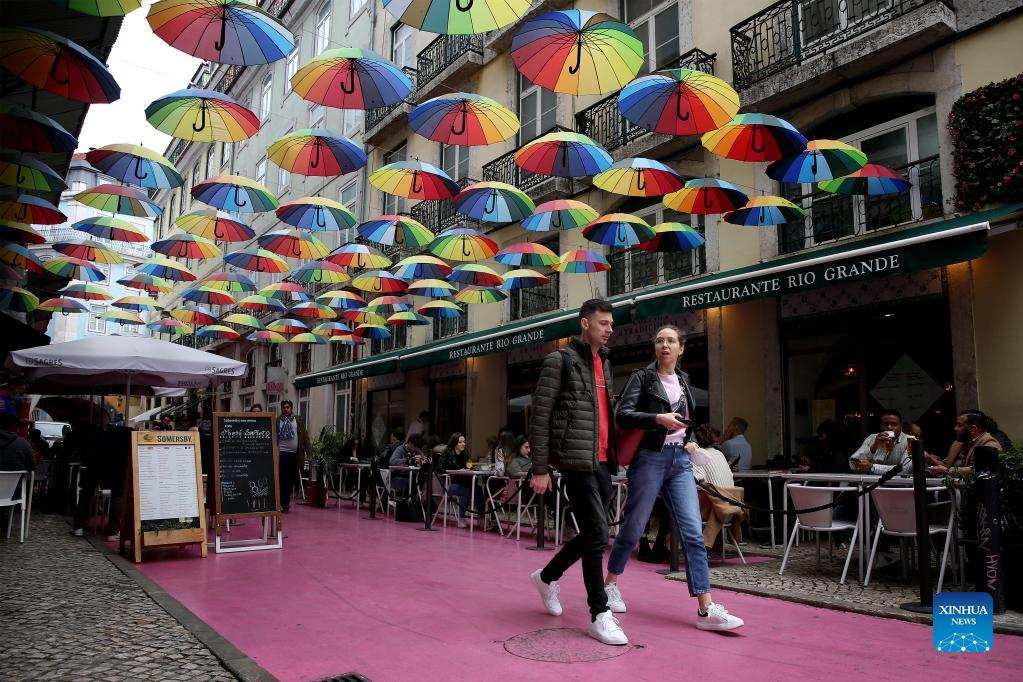
People walk on a street in Lisbon, Portugal, Feb. 18, 2022. Portugal switched from "state of calamity" to "state of alert" and relaxed some restrictions, as the government announced on Thursday. But not all control measures will be lifted at the moment, as the number of COVID-19 related deaths is "still high" in the country. (Photo by Pedro Fiuza/Xinhua)
ATHENS, Feb. 18 (Xinhua) -- Across Europe, several countries have announced in recent days the gradual relaxation of anti-pandemic measures, as the number of COVID-19 infections is declining.
The peak of the current Omicron variant wave seems to be behind, officials and experts have said, expecting that the situation will steadily improve in the coming weeks. Nevertheless, they warn against carelessness, stressing that the pandemic is not over.
"Vaccination helps and protects best against the consequences of infection ... We must also be clear that the pandemic is not over yet," German Chancellor Olaf Scholz said, after the federal and state governments agreed on Feb. 16 to ease COVID-19 measures in March under a three-phase plan.
PHASED RELAXATION
In Germany, private gatherings are no longer limited in number if all attendees are vaccinated or recovered from infection. From March 4, restaurants, hotels, clubs will be further opened. From March 20, only basic vaccination measures will be retained, if medical resources permit.
However, basic protection measures, such as wearing masks indoors and keeping social distance will remain in force in the country.
In the Netherlands, the government announced on Tuesday the "return to normal" by lifting most measures against the spread of COVID-19 under a similar three-phase plan, as official data showed that the number of new infections has dropped by 22 percent lately.
But officials will maintain the mandatory use of negative test results in certain situations and masks in public transport and airports, as the risks remain for elderly people and those in vulnerable health.
A partial lifting of measures including restrictions related to entertainment venues, school field trips, sports fields and workplaces will go into effect as of this Saturday in Greece, while the use of face masks indoors and outdoors remains obligatory.
On the same wavelength, Belgium switched the coronavirus barometer to code orange on Friday, relaxing most measures.
Portugal also switched from "state of calamity" to "state of alert" and relaxed some restrictions, as the government announced on Thursday. But not all control measures will be lifted at the moment, as the number of COVID-19 related deaths is "still high" in the country.
PANDEMIC NOT OVER
"This is not the time to say that the pandemic is over. We continue to face the risk related to the emergence of new variants of the virus and there is some uncertainty about the duration of protection provided by vaccines," said Mariana Vieira da Silva, minister of state for the Portuguese Presidency.
In Finland, where nearly all restrictions are being lifted, officials also advise for vigilance. The Ministry of Social Affairs and Health has set up a working group to investigate the preparedness of the social and health care service system for a possible next wave.
France, where restrictions relaxed and further lifting of measures is planned, is sending the same message. In mid-March the use of masks on public transport, at work and schools may be abandoned along with the vaccine pass if the health situation permits, French Minister of Health Olivier Veran said this week.
"With the virus still hitting hospitals, the end of the final restrictive measures does not mean the end of caution," French government spokesperson Gabriel Attal said.
"We have not yet overcome the pandemic," Austrian Chancellor Karl Nehammer told a news conference on Wednesday. While announcing to scrap most restrictions as of March 5, Austria will keep mask-wearing mandatory in high-risk areas and will stick to the mandate which came into effect earlier this month -- the first of its kind in the European Union (EU) that makes vaccination against COVID-19 compulsory for all adults.
MOVING EAST
Due to the obvious disparity in vaccine coverage within the European region, Hans Kluge, regional director of World Health Organization (WHO) Office for Europe, urged governments in east European countries not to emulate western governments by prematurely reopening their societies.
"Faced with the Omicron tidal wave, and with Delta still circulating widely in the east, this worrying situation is not the moment to lift measures that we know work in reducing the spread of COVID-19," he said on Tuesday.
Kluge noted that the Omicron wave, as anticipated, is moving east as "10 eastern member states have now detected this variant."
The east of WHO European Region continues to have low vaccination coverage, with less than 40 percent of those aged over 60 receiving the COVID-19 vaccine series in countries like Bulgaria and Bosnia and Herzegovina, he said, noting that vaccination remains the "best defense against severe disease and death for all current COVID-19 virus variants circulating." ■
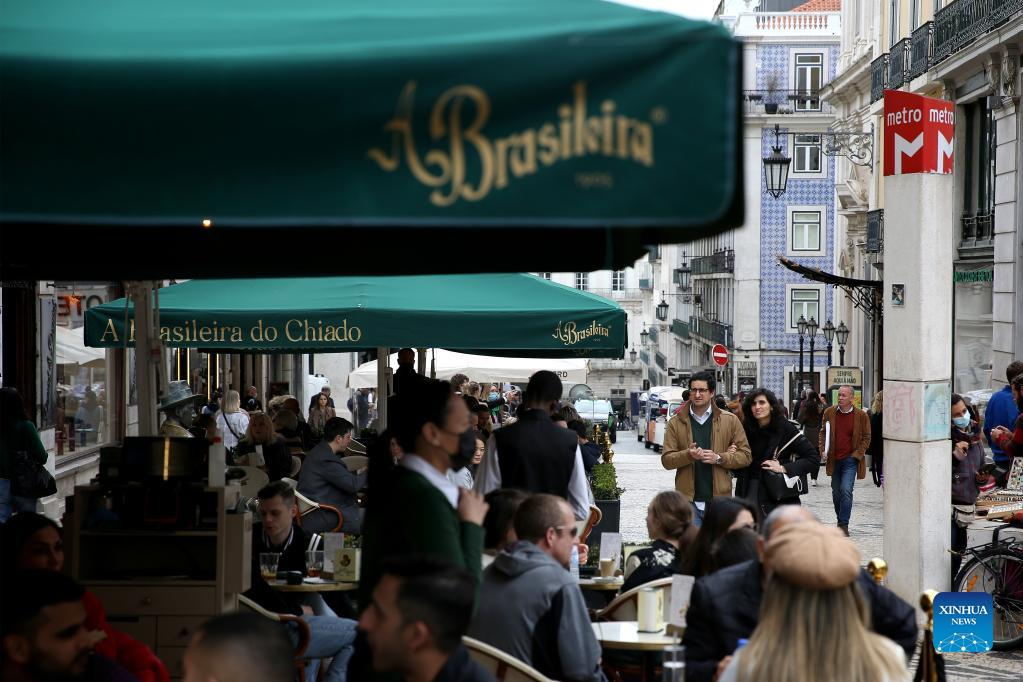
People are seen in the Chiado neighborhood in Lisbon, Portugal, Feb. 18, 2022. Portugal switched from "state of calamity" to "state of alert" and relaxed some restrictions, as the government announced on Thursday. But not all control measures will be lifted at the moment, as the number of COVID-19 related deaths is "still high" in the country. (Photo by Pedro Fiuza/Xinhua)

People are seen at a cafe in the Chiado neighborhood in Lisbon, Portugal, Feb. 18, 2022. Portugal switched from "state of calamity" to "state of alert" and relaxed some restrictions, as the government announced on Thursday. But not all control measures will be lifted at the moment, as the number of COVID-19 related deaths is "still high" in the country. (Photo by Pedro Fiuza/Xinhua)
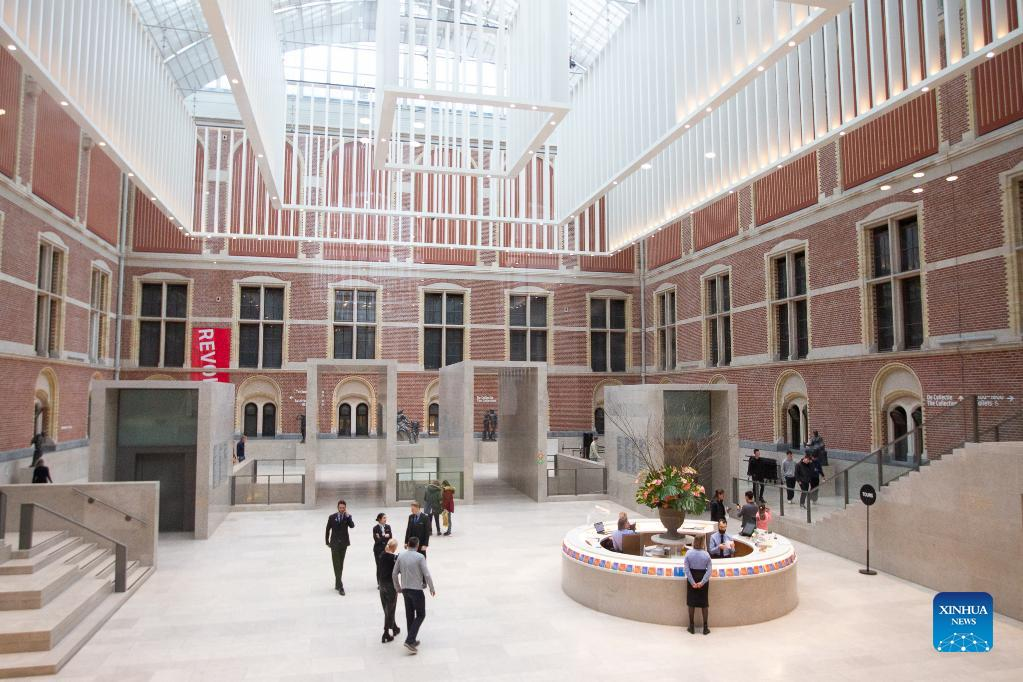
People visit the Rijksmuseum in Amsterdam, the Netherlands, Feb. 18, 2022. In the Netherlands, the government announced on Tuesday the "return to normal" by lifting most measures against the spread of COVID-19 under a similar three-phase plan, as official data showed that the number of new infections has dropped by 22 percent lately. (Photo by Sylvia Lederer/Xinhua)
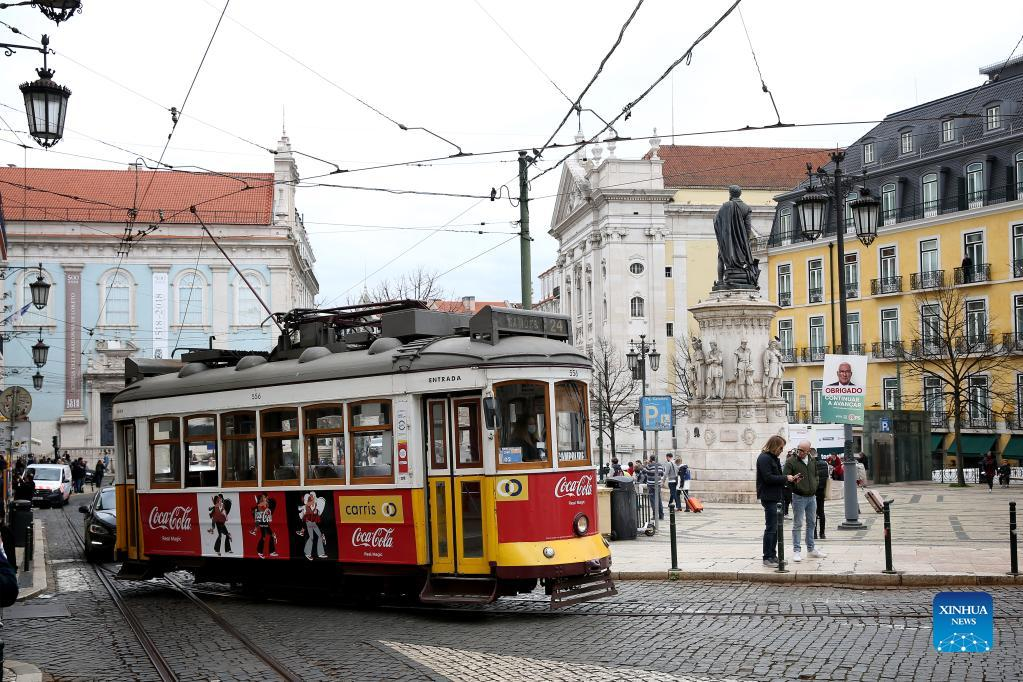
Photo taken on Feb. 18, 2022 shows a street view of Lisbon, Portugal. Portugal switched from "state of calamity" to "state of alert" and relaxed some restrictions, as the government announced on Thursday. But not all control measures will be lifted at the moment, as the number of COVID-19 related deaths is "still high" in the country. (Photo by Pedro Fiuza/Xinhua)
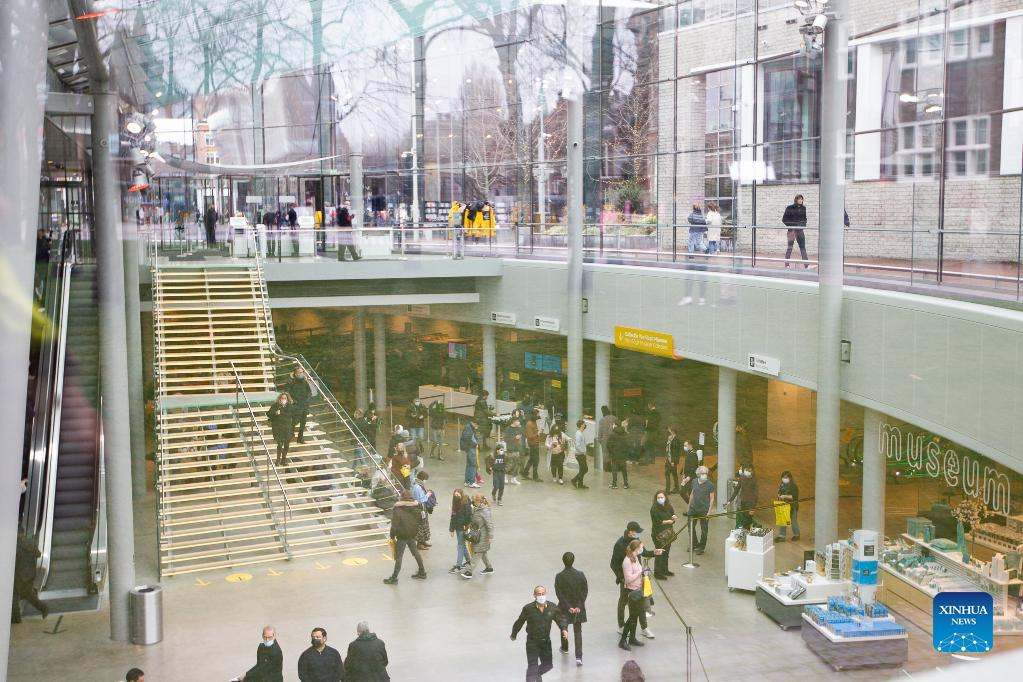
People visit the van Gogh Museum in Amsterdam, the Netherlands, Feb. 18, 2022. In the Netherlands, the government announced on Tuesday the "return to normal" by lifting most measures against the spread of COVID-19 under a similar three-phase plan, as official data showed that the number of new infections has dropped by 22 percent lately. (Photo by Sylvia Lederer/Xinhua)
